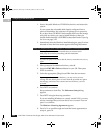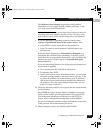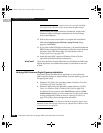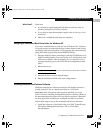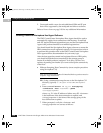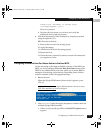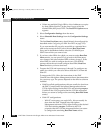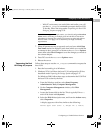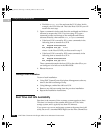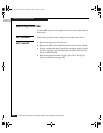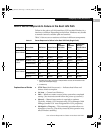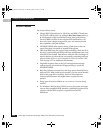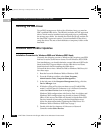
3
3-34
EMC Fibre Channel with QLogic HBAs in the Windows Environment
Configuring an EMC Boot Device
e. Find this Device Type line and note the LUN value. In this
example, the LUN value is 0. This is the Host LUN ID you will
need in the next step.
3. Open a command window and direct the multipath and failover
software to trespass the LUN. If you are using ATF, open a
command prompt and change to the multipath and failover
software directory; then enter the
atf_trespass command:
• If the boot LUN is owned by SP A, enter commands in the
following form to transfer it to SP B:
cd Program Files\emc\atf
atf_trespass atf_sp0 1:1:
n
where
n
is the Host LUN ID you discovered in step 2.
• If the boot LUN is owned by SP B, enter commands in the
following form to transfer it to SP A:
cd Program Files\emc\atf
atf_trespass atf_sp0 0:1:
n
These commands transfer the boot LUN to the other SP so you
can configure it for failover in the HBA BIOS.
4. Reboot the server.
Starting a Fresh Installation
To start a fresh installation:
◆ Using EMC ControlCenter Navisphere Management software,
remove the old boot Storage Group.
◆ Using Manager, unbind the old boot LUN.
◆ Remove any old boot zoning from the previous installation.
◆ Repeat the installation instructions.
Boot Time and LUN Availability
Boot time is the amount of time a storage system requires to boot.
This time is a function of the number and types of LUNs in the
storage system, and is typically less than five minutes.
If you power up a server and storage system at the same time (cold
start), the server’s extended BIOS might scan the Fibre Channel bus
QLogic_Windows.book Page 34 Thursday, March 10, 2005 10:31 AM



